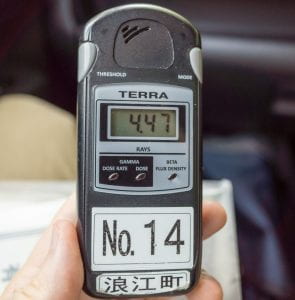Teach311 + COVID-19 is a collective of educators, researchers, artists, students and survivors spanning disciplinary and linguistic boundaries who study and teach about disasters. Our collaborative process encourages empathetic inquiry into the past, and shares those stories for the future.
Our original remit, to examine the past in order to make meaning out of the enduring effects of and recovery from the disastrous aftermath of March 11th, 2011, has broadened since Teach311.org launched in April 2011. Over the years, we have sought to bring attention to the need to interrogate disasters in global Asia by teaching through the historical lens of science and technology studies. More recently, we have sought to understand the endurance and fragility of wisdom alongside the actions that constrain or mobilize scientific and technical knowledges. Now, we face a challenge to apply the practical and intellectual lessons we have learned from our own past to engage with the COVID-19 crisis.

The new editorial direction of Teach311.org is organized around an even bolder mission to locate and responsibly amplify and learn from the voices of students and scholars located in the Global South or areas where censorship is an issue and to help provide teaching materials that may be used asynchronously by both educators and students. Indeed, the global character of the COVID-19 pandemic disaster has changed everything, while also clarifying things we have already understood. The pandemic has forced us to reflect upon the importance of accessible teaching materials and how, for Teach311.org, such accessibility has depended upon a community of students and instructors learning together—and with respect for those who have lived through disasters and have endured their traumas.
There is no point in making pedagogical tools if we do not use them. It will also become difficult to make good, responsible use of them if the process of making them is isolated from students.
The matter of access to the histories of various past and ongoing disasters, preserved through digital and analog means or through orality, additionally shows how the COVID-19 crisis has cast uneven light across the kind of stories that can be told, let alone heard. We should not let selective amnesia erect barriers to practices of empathy and to efforts to seek deeper understandings of phenomena, no matter how great or small.
Over the years, Teach311.org has grown step by step with the students and teachers who have engaged with and contributed directly to the site. From students at Sophia University (Tokyo) to Paris University (Diderot), and from faculty at Southern Arkansas University to The Ohio State University and Miyagi Gakuin Women’s University, our users and contributors have been a major force in the iterative process of learning, reflecting and improving the website you are visiting now. The moment of pandemic-inspired change for the Teach311.org project has led to the formation of a cross-platform collaboration with the Max Planck Institute for the History of Science that collates and disseminates educational resources related to COVID-19. We lend our collective strengths to the educational stream of this platform, entitled “History of Science ON CALL.” Our collective is meanwhile producing new pedagogically enriching content under the rubric of Teach311 + COVID-19 (www.TeachCOVID-19.org). Although we are living and working in a historical moment with the current pandemic, the relevance of the past remains in sight. We will weather through this time of uncertainty together, learn from new voices, and develop the site in new directions.
The “3.11” triple disaster also remains unsettled, and if it offers any premonition as to what our shared future will be like, it behooves us to continue to teach crises from the past as we struggle through the pandemic in the months and years to come.
– Lisa Onaga, Kristina Buhrman, Chelsea Szendi-Schieder, Yeonsil Kang, Shoan Yin Cheung, Grace Teo, Grace Ting, Chihyung Jeon, Nathaniel M. Smith, Michael Stanley-Baker
(Teach311 + COVID-19 Editors)
This editorial is based on a note published on 25 March 2020. Read it here.
Further readings
Lisa Onaga, “Teach 3.11: Participatory Educational Project Puts the Kanto-Tōhoku Disaster into Historical Context,” East Asian Science, Technology and Society: An International Journal 5, no. 3 (2011): 417–22.
Lisa Onaga and Aaron S. Moore, “Introduction: Searching for the Historical Roots of 11 March 2011,” Technology and Culture 58, no. 1 (2017): 154–58.
Lisa Onaga and Hanna Rose Shell, “Digital Histories of Disasters: History of Technology through Social Media,” Technology and Culture 57, no. 1 (2016): 225–30.
Grace Teo and Lisa Onaga, “Making Meanings: Introducing the Teach311.Org Interview Collection,” Verge: Studies in Global Asias 5, no. 1 (2019): 46–58. Click here to view an uncorrected proof version of this article.
* * *
The Teach311 + COVID-19 Collective began in 2011 as a joint project of the Forum for the History of Science in Asia and the Society for the History of Technology Asia Network and is currently expanded in collaboration with the Max Planck Institute for the History of Science(Artifacts, Action, Knowledge) and Nanyang Technological University-Singapore.
![[Teach311 + COVID-19] Collective](https://blogs.ntu.edu.sg/teach311/files/2020/04/Banner.jpg)